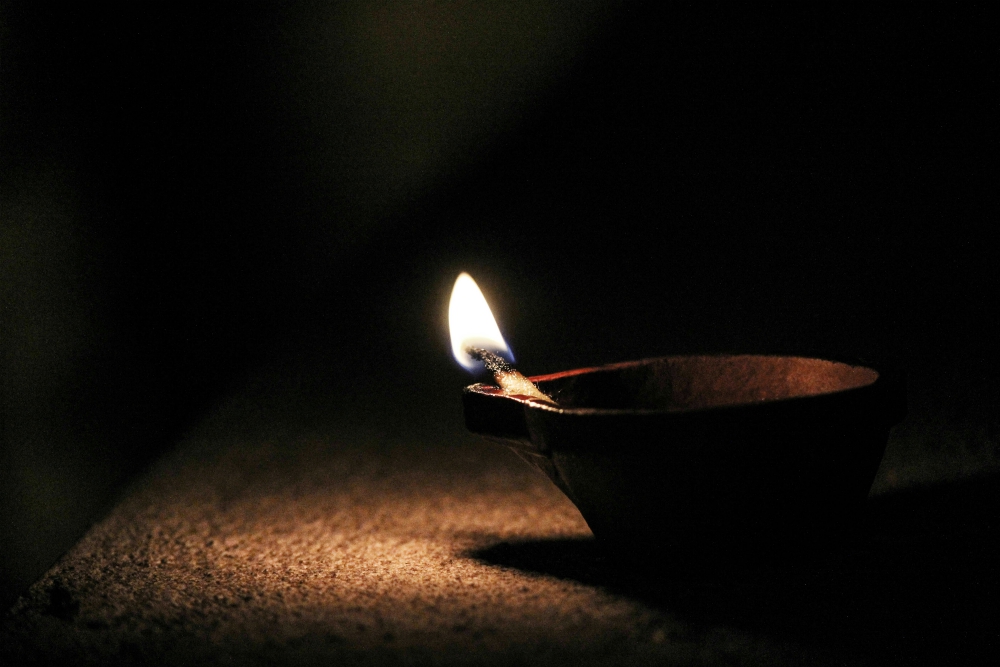
(Unsplash / Vivek Karthikeyan)
A very good friend of mine periodically asks me: Why do you believe that we are evolving in a positive way? Why do you believe that our consciousness is developing toward greater complexity, inclusivity and unity?
As the new year began, I found myself contemplating those questions.
So much is happening that points to humanity circling backward with no movement forward. We see it in a call to return to nationalism; acceptance of more authoritarian rulers; those in power blaming all that is going wrong on those who are seen as different; the assertion of U.S. dominance and working unilaterally rather than in coalition to address military and economic issues.
Such a consciousness cannot be dismissed. Yet I also experience another consciousness evolving like a spiral. It emerges from those earlier understandings of who we were and takes a turn upward, outward and begins to come around again on a wider trajectory. I see it in the greater acceptance of others as we embrace racial, religious and gender differences; in the growing awareness that we are a planetary community as we address the reality and urgency of the climate crisis; in the deepening belief that we must work in coalition to address the military and economic violence that is tearing us apart among and within nations.
The question's shape shifts within me. Why do I believe that evolution itself has a directionality that over time expands, transcends and includes the best of all that came before? And that our consciousness evolves as well?
Maybe I just have to believe this in order to give meaning to life.
But I know there is more.
It is a matter of faith and hope. And love.
It is rooted in the integration of my Catholic faith and contemporary science. I consider myself to be fortunate that back in the mid-'60s I began reading Pierre Teilhard de Chardin's work. He was a Jesuit priest, paleontologist and mystic. Unlike so many who today in our postmodern world continue to see an irreconcilable difference between science and faith, Teilhard spent his life understanding the deep connections between evolution and spirituality. His insights were a challenge to my very traditional Catholic consciousness and yet I found a resonance and an attraction that stayed with me and developed over the years.
To speak of God as Love is familiar to us. But how is that love understood and embodied in our world? Teilhard offered an integral vision of science, religion and mysticism.
Ursula King, a scholar on Teilhard's works, wrote a book, Christ in All Things: Exploring Spirituality With Pierre Teilhard de Chardin. In it, she said, "For Teilhard, love is 'a sacred reserve of energy; it is like the blood of spiritual evolution' through which we can develop the sense of the Earth and 'the miracle of a common soul' for the world.
Teilhard wrote about harnessing for God the energies of Love and in so doing transforming the entire human community — culture, social institutions and human consciousness. King said that Teilhard had a deep belief that a greater, stronger, more inclusive love for all people and for all of life must be an integral part of the further evolution of the human species.
Advertisement
Teilhard explored these insights rooted in his Catholic faith. God's Word is incarnate and present not only in all humans but in all created reality. King interpreted that as meaning that God is incarnate in matter, in flesh, in all of creation, in the cosmos.
Over the decades, I pondered Teilhard's works and later those of other theologians who developed his insights into an ecological spirituality. I was part of the social movements of these last 50 years that brought a new awareness to the beauty of each person and of all creation. I began to understand my Christian faith in a new way that integrated the science and cosmology of our time. I understood how each of us is responsible for living the Gospel of love concretely in our lives. We move forward with a greater sense of the whole — a belief in communion, a unity that embraces diversity.
And this process takes place slowly in evolutionary time.
Teilhard's insights are rooted in Jesus' love for all people regardless of faith, gender, economic class or cultural bias. Bringing that to contemplation deepened my own belief in this amazing evolutionary process of which we are a part.
I have to have faith and hope in who we are becoming. Change is happening. As with evolution, there are times of great creativity and destruction. We have only our one life to offer to shape how the future emerges. We have a responsibility to let God be God within us. That is what contemplation invites us to — to be open to God working within us.
If we can do this, then perhaps over time, the energies of love will be harnessed and Teilhard's prayer will be fulfilled.
Someday, after mastering the winds, the waves, the tides and gravity, we shall harness for God the energies of love, and then, for the second time in the history of the world, humanity will have discovered fire.
[Nancy Sylvester is founder and director of the Institute for Communal Contemplation and Dialogue. She served in leadership of her own religious community, the Sister Servants of the Immaculate Heart of Mary, Monroe, Michigan, as well as in the presidency of the Leadership Conference of Women Religious. Prior to that she was national coordinator of Network, the national Catholic social justice lobby. You may be interested in the current ICCD program, Enter the Chaos: Engage the Differences to Make a Difference.]





